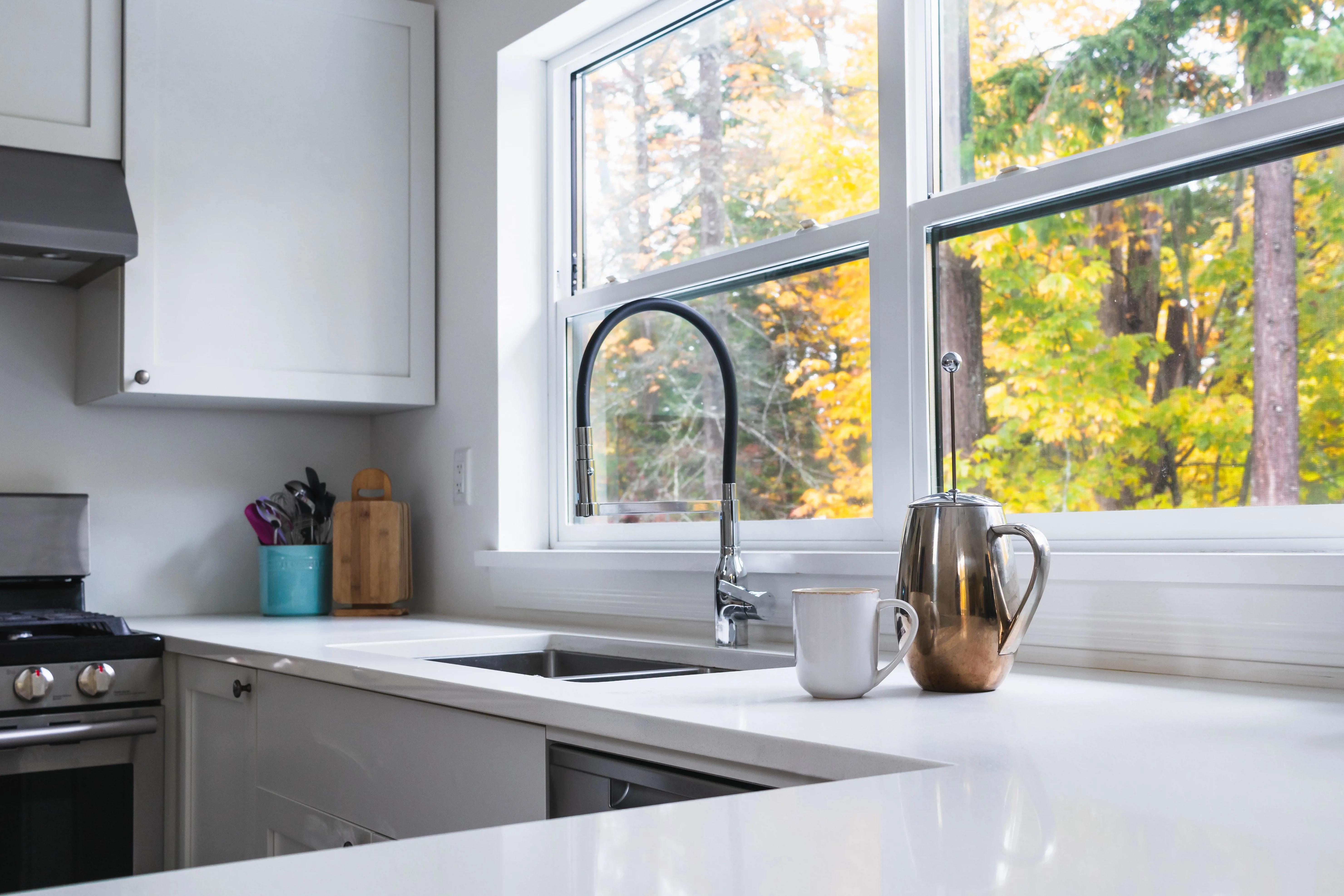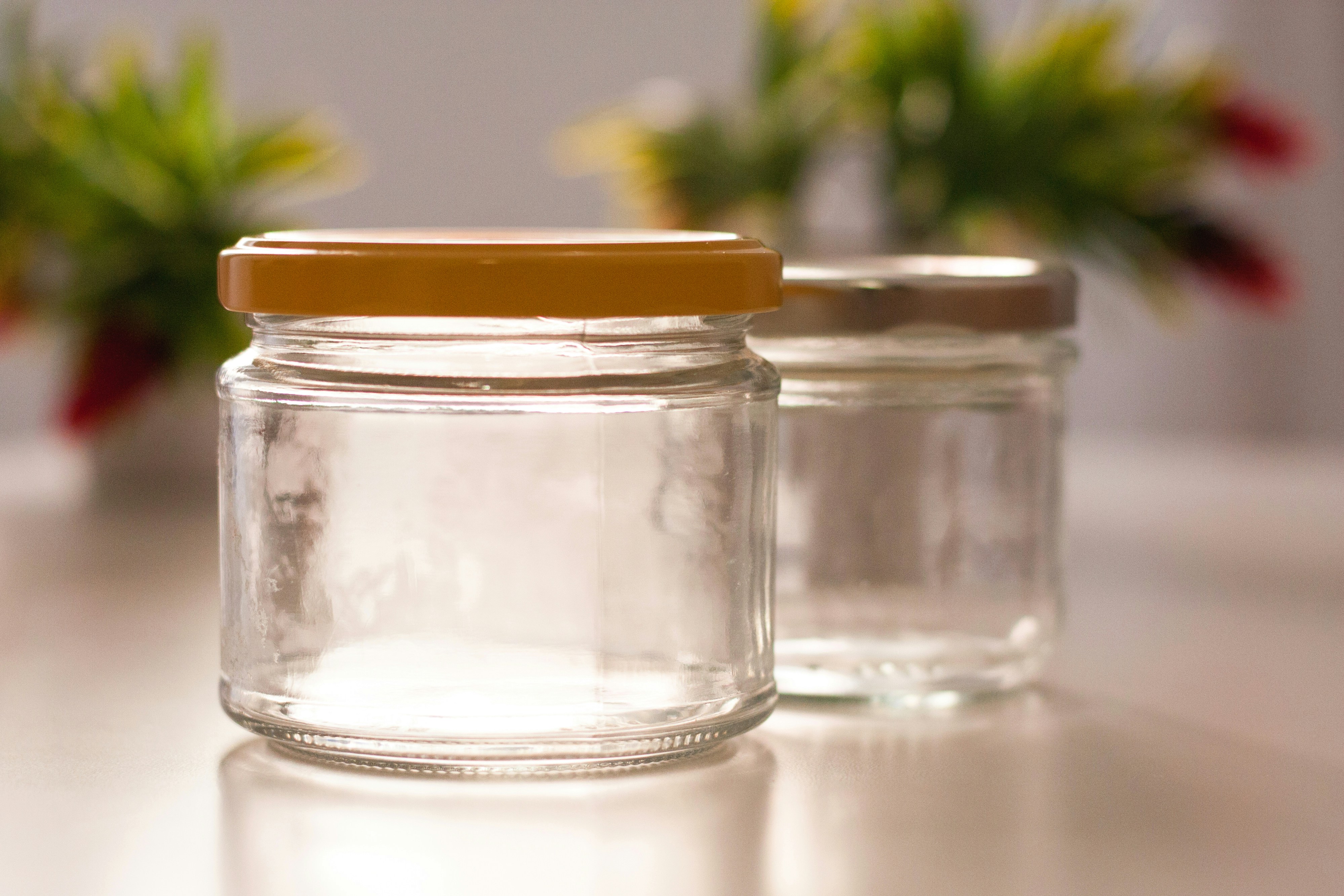If you run a business, manage an office, look after facilities or lead on sustainability, you've probably asked yourself this before. Do you have to wash your recycling?
It’s one of the most common questions when it comes to workplace waste. And the answer is simpler than you might think.
Recycling doesn’t need to be spotless. A quick scrape or rinse is usually enough to prevent contamination and keep your bins clean and compliant.
In this guide, we’ll bust the myths about cleaning recyclables, explain how clean your recycling really needs to be, and share easy, water-saving tips for your workplace.
What is recycling contamination?
Recycling contamination happens when food, liquid or non-recyclable items are mixed in with clean recycling. This can spoil large quantities of materials, making them impossible to process and sending them to general waste instead.
It’s a big issue for UK workplaces. Even small mistakes can cause problems, from unwanted smells and pests to rejected collections and extra costs.
Here are some common examples of recycling contamination in UK businesses:
- Pizza boxes with crusts or cheesy leftovers
- Tins or jars that still have food inside
- Coffee cups placed in mixed recycling
- Greasy foil trays or food-stained paper
- Cleaning products in bottles marked for recycling
Knowing what not to recycle is just as important as knowing how clean your recycling needs to be. Getting this right helps reduce recycling contamination in the UK and supports better outcomes across the system.
At First Mile, we regularly help businesses tackle these issues and follow commercial recycling rules with ease.
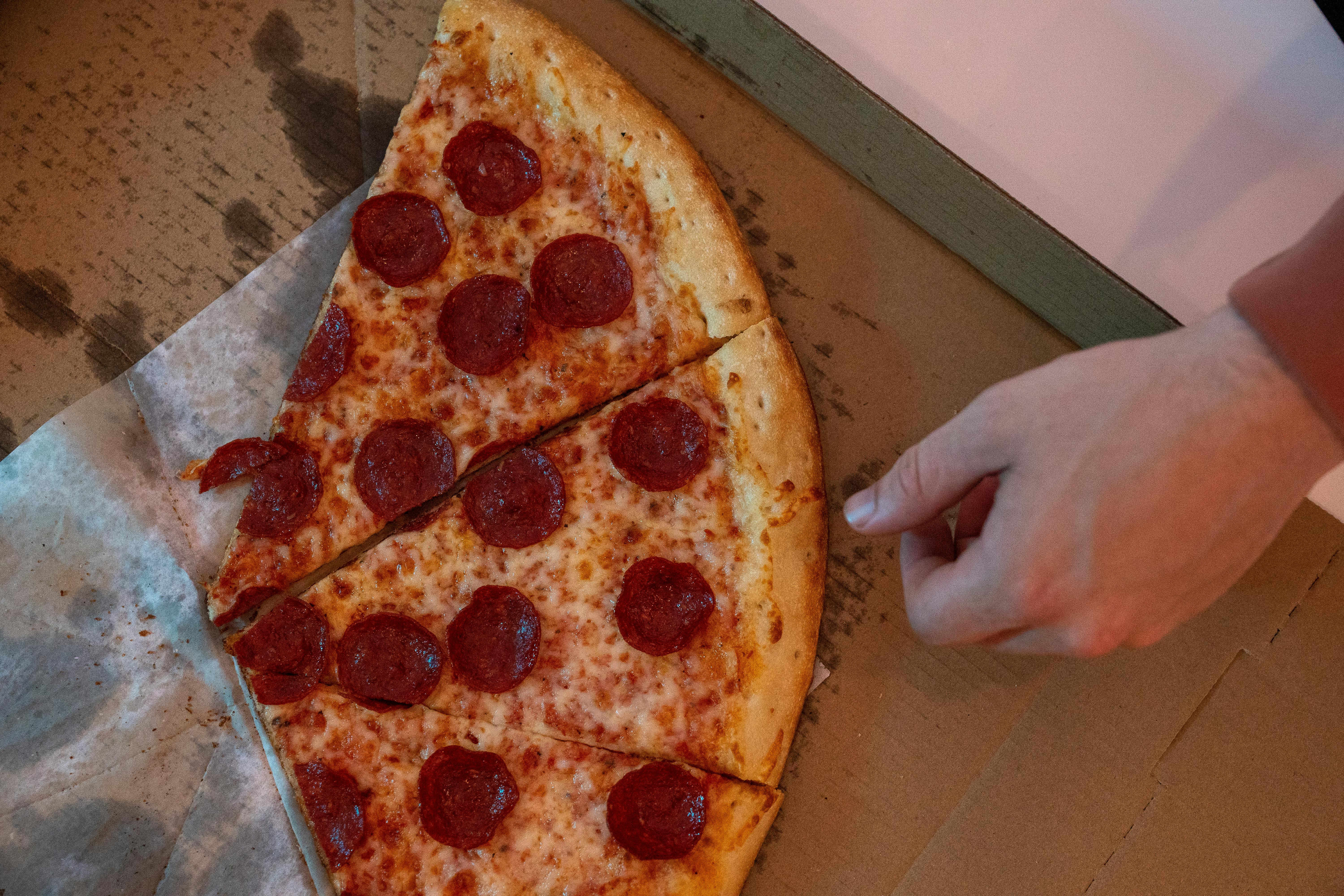
How clean is clean enough?
When it comes to preparation of recyclables, there’s no need for scrubbing or wasting water. The goal is to remove food, grease or liquid that could contaminate a load. That’s it.
Think of it as a quick check, not a deep clean. You’re not trying to make it perfect, just clean enough to avoid issues.
Quick rules of thumb:
- Scrape off food chunks
- Pour away liquids
- Shake or wipe if needed
- Use leftover dishwater to rinse containers
- No need to remove labels or scrub every surface
This approach helps you reduce recycling contamination without adding time or cost. It also supports business recycling best practice by keeping materials suitable for processing.
Do you have to rinse recycling in the UK?
You don’t always have to rinse your recycling, but you should remove any obvious residue. A quick swirl with old washing-up water or a wipe with used paper will usually do the trick. The key is to keep it dry and free from anything that might spoil the rest of the load.
Clean recyclables help your workplace stay compliant with commercial recycling rules and make the whole system more effective.
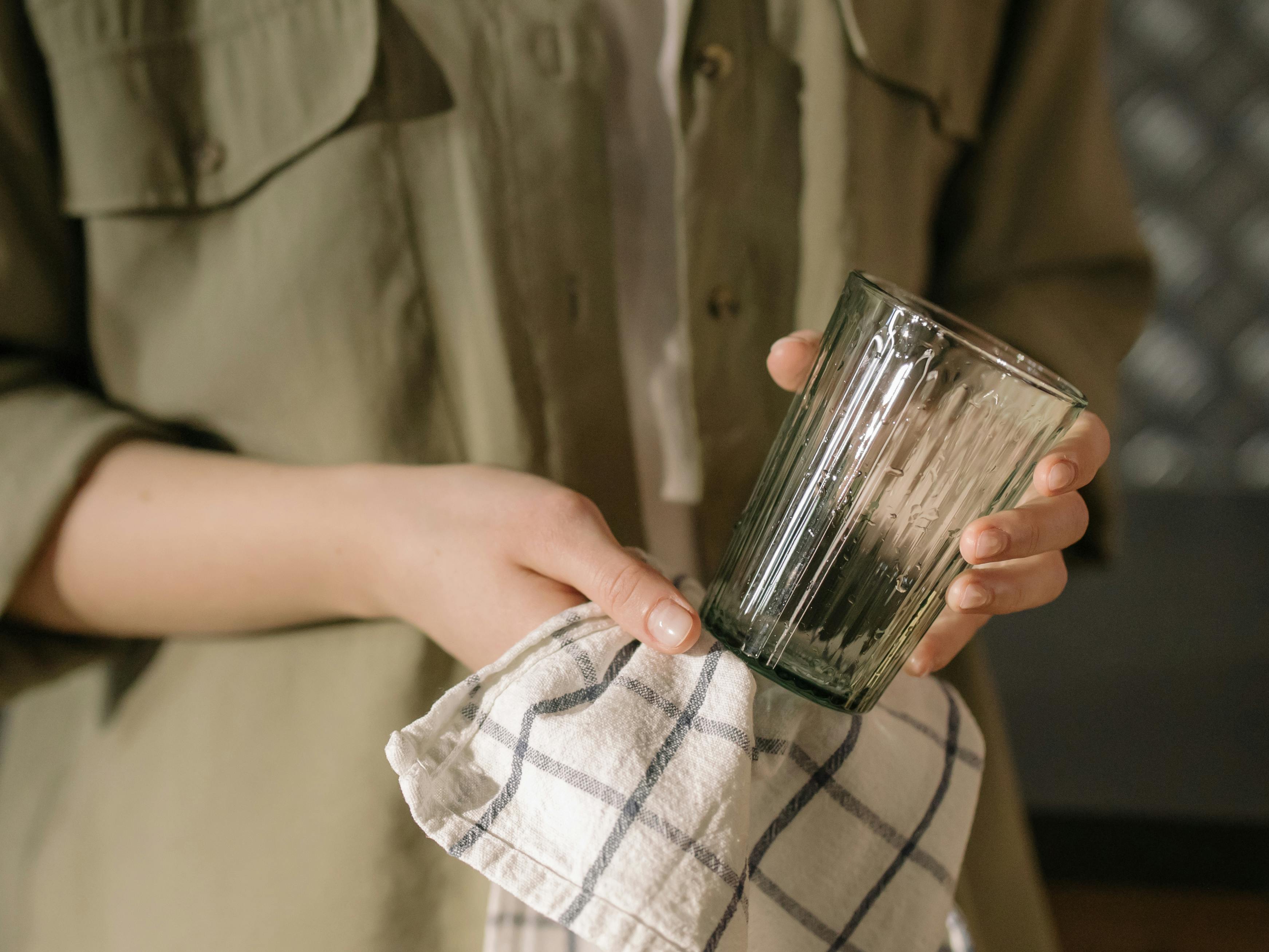
How to clean different types of materials
Different materials need different levels of care. Here’s how to prepare recyclables correctly without overdoing it.
Glass bottles and jars
- Empty out all liquid
- Swirl with a small amount of water if needed
- Put lids back on before recycling
- Remove corks and compost them if possible
Glass recycling is straightforward when bottles and jars are clean and dry.
Plastic bottles and tubs
- Scrape out any leftovers
- Lids and labels can stay on
- Do not recycle containers that held hazardous materials
- Squash bottles to save space in your bins
Single-use plastics recycling is easier when plastics are clean and compact.
Food tins and cans
- Empty completely
- Swirl with water if visibly dirty
- Place metal lids inside the tin before recycling
Food residue is one of the most common causes of recycling contamination in the UK, so this step matters.
Foil and trays
- Wipe with used kitchen paper or rinse using old dishwater
- Make sure all food residue is removed
Recyclables preparation is quick and effective with simple habits like these.
Cardboard and pizza boxes
- Only recycle boxes that are clean and dry
- Small grease spots are fine
- Tear off and recycle the clean lid if the base is too greasy
Cardboard recycling works best when boxes are flat, dry and food-free. Need help on how to recycle pizza boxes? This is one of the most misunderstood items. First Mile can help you follow workplace recycling guidelines with ease.
Paper
- Do not recycle paper that is stained with food, oil or paint
- Keep paper dry to preserve its quality
Plastic film, wrappers and pouches
- Make sure they are clean enough for flexible-plastic recycling
- Tear off sticky labels if possible
- Use Return and Recycle for hard-to-recycle items
Flexible plastics can often be recycled commercially if they are clean and dry. Speak to First Mile about what can be included in your business collections.
Common recycling mistakes to avoid
Even when your team has the best intentions, some habits can lead to contamination and rejected loads. Knowing what can’t be recycled is a key part of business recycling best practice.
Here are some of the most common workplace recycling mistakes in the UK:
- Pizza boxes with leftover food
Greasy bases or crusts left inside can spoil whole loads. If only part of the box is clean, tear it up and recycle what you can. - Half-full jars or tins
Leftover sauce or oil can leak and damage other recyclables. Make sure containers are empty before placing them in the recycling. - Paper towels in the paper bin
Used paper towels are classed as contaminated waste and belong in general waste. They cannot be recycled with clean paper. - Coffee cups in mixed recycling
Disposable coffee cups often have plastic linings that make them difficult to recycle. Use First Mile’s coffee cup recycling to handle them correctly. - Overusing water to clean items
You do not need to rinse everything thoroughly. Save water by using leftover washing-up water or a quick wipe instead.
By avoiding these mistakes, you can follow workplace recycling guidelines more effectively, cut waste and stay compliant with commercial recycling rules.
Tips for better recycling at work
Helping your team recycle correctly is surprisingly simple. With a few simple steps, you can improve outcomes, avoid contamination and support a more sustainable workplace.
Here’s how to make business recycling best practice part of your daily routine:
- Use free recycling posters
Display First Mile’s recycling posters near bins to show what goes where. Clear guidance helps prevent mistakes and improves preparation of recyclable materials. - Add clear signage to bins
Make it easy for everyone to follow workplace recycling guidelines by labelling each bin clearly. Include visuals if possible. - Run a team lunch and learn
A short session can help staff understand what not to recycle, how clean items need to be and how to avoid contamination. - Choose a recycling partner that guarantees zero-to-landfill
At First Mile, we send nothing to landfill and help your business stay compliant with all UK commercial recycling rules. - Get ready for new workplace recycling regulations
From 2025, UK businesses must meet stricter requirements on waste separation. First Mile can help you prepare and stay ahead of the rules.
Recycling doesn’t have to be perfect. It just needs to be clean enough to keep your materials usable and your collections compliant.
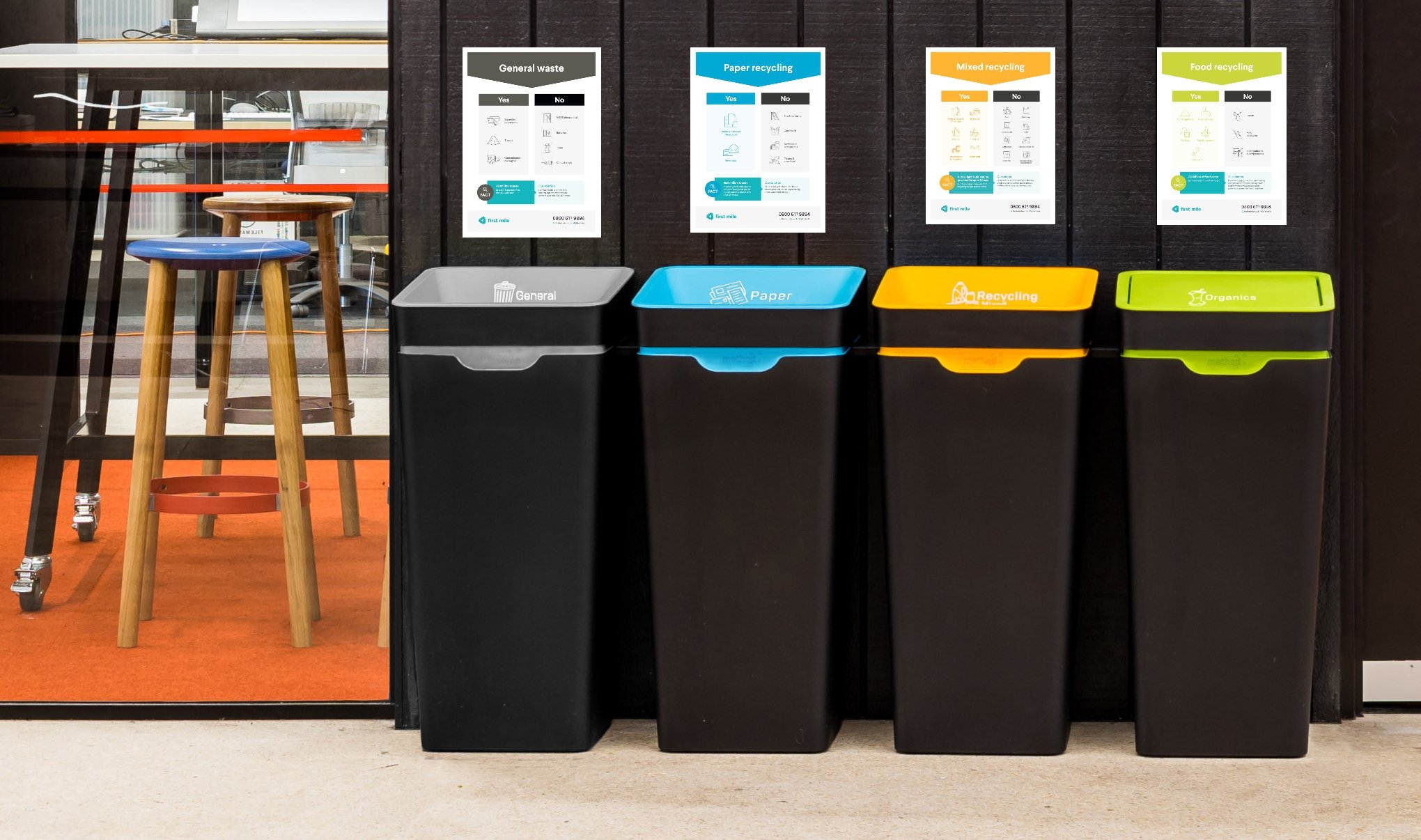
Keep it simple, clean and compliant
You don’t need to scrub every item before recycling, but leftovers like food, grease and liquid are a problem. They can contaminate your bins, lead to rejected loads and stop recyclable materials from being processed properly.
The key is simple recyclables preparation. Scrape off food, shake out liquids and give containers a quick wipe if needed. That is often enough to meet UK workplace recycling guidelines and reduce contamination.
Every clean item helps keep waste out of landfill and supports a circular economy. And when you work with a partner like First Mile, you can be confident your recycling is handled the right way from start to finish.
Want to improve your recycling and reduce contamination? Find out how First Mile can help your business recycle smarter.
